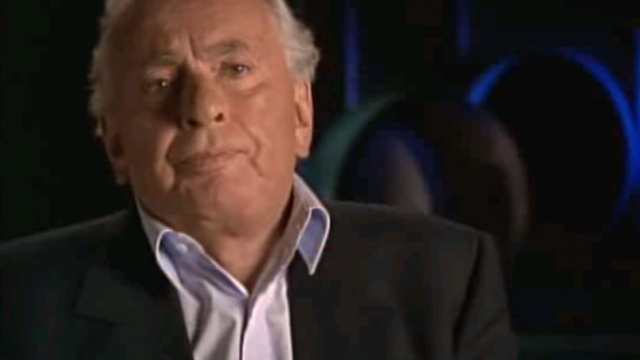Grown-up nerds like Gore Vidal. And even he’s kissed more boys than I ever will.
—Lisa Simpson, “Summer of 4 Ft. 2”
It turns out the famous political Gore family of Oklahoma and the famous political Gore family of Missouri are probably not related, for all Al Gore believed himself to be something like seventh cousins to Gore Vidal. The two men did have some things in common—failed political runs, for one thing—but otherwise, they are very different. I honestly don’t know what I think of Al Gore as a writer, since I’ve never actually read any of his books, but even though I know Al Gore is funnier than his reputation, it’s hard to picture him telling shocking stories about Charlton Heston to the Celluloid Closet camera.
Gore Vidal was born in the cadet hospital at West Point, of all places; his father was at the time the academy’s aeronautics professor, the first in its history. His birth certificate says Eugene Louis because his father apparently forgot his own first name was Eugene Luther. It was changed, making him a junior. When he was christened an Episcopalian at thirteen, he became Eugene Luther Gore Vidal. He then dropped the first two names, as he wanted a punchy name to write under and didn’t want to be a junior. And all of that sounds, frankly, like the sort of the Vidal himself might make up for a character but turns out to be completely true.
He was a strange character in many ways; he puttered around Hollywood for decades, writing for TV and the movies. He seems to have been a bit of a script doctor as well, though IMDb doesn’t list those. Except Ben-Hur, because you can’t not talk about Ben-Hur anymore, now that we’ve all heard him talking about it. Fewer people talk about Myra Breckenridge, and I imagine fewer people than that have actually seen it. I haven’t, by all accounts because it sounds awful.
Because really, the thing of his to watch if you’re only going to watch one is The Celluloid Closet, because what you really want out of Gore Vidal is catty stories. At least, if you’re me. And he definitely provides some of the highlights of that movie even beyond the Ben-Hur story. His throwaway remarks that Will Hays was “one of the rare unindicted members of Harding’s Cabinet” and that “he looked not unlike Mickey Mouse” (especially coming as it does right before you see Will Hays for the first time in the movie) are worth the price of admission as well, especially for those of us for whom the price of admission was checking the movie out of the college library.
Oh, there are some ways he wasn’t great—he figured that, if the government was going to take taxes at all, we might as well get good public services out of it. Well, he wasn’t wrong, but it’s a heck of a reason to vote for Democrats. He also referred to Roman Polanski’s victim as actually being a prostitute, which is appalling. He was, in many ways, an upper class snob born in the ’20s who also happened to be gay—and at that, people try to claim that his lack of critical success came not because he was gay but because he wrote historical fiction. Though honestly, I didn’t finish the one book of his I started because I just didn’t like his writing style.
If you like my writing style, consider supporting my Patreon or Ko-fi!

